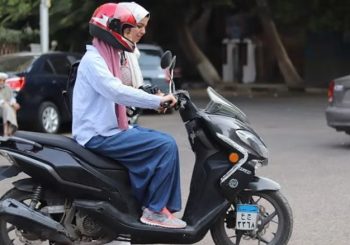Human trafficking is a multifaceted crime, primarily aimed at exploiting the most vulnerable groups of society, as identified by the United Nations (UN) Protocol to Prevent, Suppress, and Punish Trafficking in Persons, Especially Women, and Children—an adjunct to the UN Convention against Transnational Organized Crime.
It is the third largest and fastest-growing organized crime globally, following drug trafficking and illicit arms dealing, according to a 2016 study by the American University in Cairo (AUC).
According to Egyptian law, a person is guilty of human trafficking if they engage in any form of exploiting people. This includes selling, offering, purchasing, using, transporting, delivering, harboring, or receiving a person, whether within the country or across its borders.
Sexual exploitation, prostitution, the exploitation of children in sexual activities and pornography, forced labor, slavery or slavery-like practices, begging, and the removal of organs or human tissues, are some of the actions Egyptian law also specifies as various forms of human trafficking and exploitation.
Human trafficking is a pressing issue around the world. As of 2017, the US National Human Trafficking Hotline reported that there were 40.3 million victims worldwide, including around 25 million in forced labor and 15 million in forced marriages.
Notably, children are four times more likely to be trafficked for labor than for sex worldwide, with 27 percent of all trafficking victims being minors, the World’s Children organization reported.
This grim reality is paralleled in Egypt, as human trafficking extends to the exploitation of homeless children by local gangs for prostitution and forced begging, a 2011 Trafficking in Persons (TIP) Report on Egypt reported. Additionally, an estimated 200,000 to 1 million homeless children, both boys and girls, were subjected to abuse through prostitution and forced begging.
Traffickers, sometimes even in the guise of parents, force children into begging on the streets or exploit young girls through sex trafficking. These children often also have to endure domestic servitude, drug trafficking, quarrying, and grueling agricultural work.
Forced, underage marriages: the reality in Egypt
As of 2021, around 30.6 million people are living in poverty in Egypt, marking 28 percent of the whole population with an illiteracy rate for people older than 10 years old of 17.9 percent, and an unemployment rate of 7.44 percent. Desperation, sometimes driven by poverty and lack of education, leads some Egyptian parents to sell their daughters.
According to the 2024 TIP USA report, “temporary marriages,” also known as “transactional marriages,” are common in Egypt, as men from the Gulf countries, including Kuwait, Saudi Arabia, and the United Arab Emirates pay a sum of money to marry Egyptian girls.
These arrangements, facilitated by the victims’ parents and marriage brokers who profit from the transactions, serve as fronts for commercial sex, including instances of sex trafficking and forced labor.
Under Egyptian law, abuse of power, the exploitation of a person’s vulnerability or need, or offering or receiving payments or benefits in exchange for obtaining consent to traffic an individual, as well as the use of force, violence, threats, abduction, fraud, deception, are strictly prohibited.
Combating Human Trafficking
In 2003, through the Presidential Decree No. 294 in alignment with Article 151 of the 1971 Constitution, Egypt ratified the United Nations Convention against Transnational Organized Crime and its accompanying Protocol to Prevent, Suppress, and Punish Trafficking in Persons, Especially Women, and Children. Since then, the country has been actively developing a comprehensive framework to both prevent and combat human trafficking while safeguarding victims from its severe consequences.
In 2007, Egypt established the National Coordinating Committee for Combating and Preventing Human Trafficking (NCCPIM) to address human trafficking. The NCCPIM has since played a pivotal role in developing national and international policies, plans, and programs to combat and prevent human trafficking, serving as a central mechanism for monitoring and evaluation.
In 2010, after a report involving the marriage of minors, the National Council for Childhood and Motherhood (NCCM) of the Ministry of Family and Population (MOFP) investigated 50 cases of temporary marriages, leading to the prosecution of 29 individuals including imams, marriage brokers, and parents who benefitted from facilitating these unions, as well as the men involved in purchasing these young girls.
Notably, in May 2010, a Saudi national, aged 76, was sentenced to a decade in prison and fined for his involvement in the temporary marriage of a 14-year-old girl; a lawyer and marriage broker, along with the girl’s parents, received prison sentences of 10 years, two years, and one year respectively, under the Child Law.
Recently, the Egyptian government, recognized as a pivotal member of the Group of Friends United against Human Trafficking in New York, has developed a National Strategy for Preventing and Combating Human Trafficking (2022-2026), emphasizing awareness and national capacity-building as key components.
The new national strategy aims to combat trafficking by increasing convictions of traffickers, doubling the training of officials responsible, and issuing presidential directives to prioritize certain public awareness and protection activities.
It also focuses on the groups most vulnerable to exploitation by traffickers, including young people aged 18 to 35, children and their families, and illegal migrants in Egypt. It aims to deter and punish migration brokers and traffickers through stringent measures and penalties.
In combating trafficking and most importantly, raising awareness, the strategy enlists the participation of all relevant government entities, law enforcement, educational, religious, and media outlets, as well as civil society organizations.
While strides have been made, the challenge remains immense.







Comments (0)